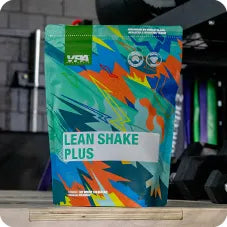- $0.00 AUD Subtotal
10 Proven Whey Protein Benefits (and Why WPI Might Be the Best Option)
August 26, 2025 9 min read

TL;DR
Whey protein is more than just a gym supplement. It’s a scientifically backed, nutrient-dense protein source with benefits for muscle growth, weight loss, skin health, and overall wellness and recovery. Among the different types of whey protein, Whey Protein Isolate (WPI) stands out for its high purity, low lactose, low carbs and fat, and superior protein content (90% protein) compared to Whey Protein Concentrate (WPC) (70-80% protein content). If you’re looking to enhance your fitness, support metabolism, recover faster, and promote long-term health, adding whey protein powder to your daily routine could be a wise choice.
How We Evaluated the Benefits
Whey protein is one of the most scientifically researched supplements.
What is whey protein?
Whey protein is a complete protein derived from milk, containing all nine essential amino acids.
In this blog, we review the whey protein benefits based on:
- Clinical studies
- Meta-analyses and systematic reviews
- Verified health outcomes related to both men and women
We aim to simplify scientific jargon and present evidence-based, easy-to-understand information that helps you decide if whey protein is right for your fitness goals.
A Quick-Glance of Whey Protein Benefits
| Benefit | Best For |
| Muscle Growth & Strength | Fitness enthusiasts, athletes, gym-goers |
| Faster Recovery | Post-exercise fatigue, Delayed Onset Muscle Soreness - helps return faster to the gym and maintain regularity |
| Weight Loss Support | Body recomposition, calorie control, lean-muscle build |
| Boosts Metabolism | Fat burning, metabolic rate |
| Immune System Enhancement | Illness prevention, recovery support |
| Appetite Regulation | Cravings, emotional eating |
| Cardiovascular health | |
| Chronic inflammation - although research is limited | |
| Amino Acid Supply | Daily nutrition, tissue repair |
| Total cholesterol, LDL improvement |
The Top 10 Benefits of Whey Protein
1. Builds Muscle Mass & Strength
Whey protein is rich in branched-chain amino acids (BCAAs), especially leucine, which plays a key role in muscle protein synthesis and muscle hypertrophy. Because of higher leucine content and faster absorption, consuming Whey Protein Isolate (WPI) post-workout enhances muscle recovery and strength gains more efficiently than other protein types.
Whether you’re an athlete or a beginner, 1-month whey protein results often include improved muscle tone and endurance.
Try VPA's Whey Protein Isolate (WPI) for muscle growth.
2. Aids Recovery & Reduces Muscle Soreness
After intense exercise, your body needs the proper nutrients to repair damaged muscle fibres. Whey protein provides fast-absorbing amino acids that reduce delayed onset muscle soreness (DOMS) and speed up recovery. So, you are consistently able to engage in intense, sweat-drenched gym sessions day after day.
WPI vs WPC: WPI absorbs quickly and may be more effective post-workout, especially for those with lactose sensitivity. WPC, on the flipside, is slower-digesting, and may not be suitable for lactose-sensitive individuals.
Moreover, hydrolysed whey protein is also a good option as it is pre-digested, which means it absorbs pretty quickly to aid faster recovery.
3. Supports Healthy Weight Loss
Whey protein for weight loss works by increasing satiety, reducing calorie intake, and preserving lean muscle during a calorie deficit. Regular intake, especially when combined with exercise (a good mix of cardio and weight training), contributes to fat loss, lean muscle build, and improved body composition.
Many females find the benefits of whey protein for females especially helpful in managing appetite and achieving toning goals.
Support fat loss with VPA’s WPI (due to high protein, low fat, and carb content)
4. Boosts Metabolism & Fat Burning
A high-protein diet naturally raises thermogenesis. Simply put, your body burns more calories digesting protein. Whey, in particular, can support higher metabolic rates and improved fat oxidation.
Those aiming for weight management should include whey protein powder daily to help their metabolism work more efficiently. Although Whey Protein Concentrate (WPC) works well too, WPI stands out due to a higher protein content and lower fat.
5. Enhances Immune Function
Whey protein, particularly WPC, contributes to a stronger immune system 4. This is especially useful for those undergoing intense training, experiencing stress, or looking to support general well-being and health in females.
Whey Protein Concentrate is an excellent source of essential amino acids and contains one of the highest proportions of branched-chain amino acids found in natural protein. It contains 70-80% slow-digesting protein with small amounts of fats and carbohydrates, and added minerals and nutrients that keep you satiated throughout the day and enhance immunity.
In Australia, many products like VPA’s whey protein range are fortified with vitamins to enhance immunity further.
6. Regulates Appetite & Promotes Satiety
Whey protein helps curb hunger due to the release of PYY and GLP-1 peptides 5. It’s ideal as a mid-meal snack or part of breakfast to reduce cravings and overeating.
WPI is particularly effective for this, and can be used in breakfast shakes or as a meal replacement.
7. Helps Maintain Healthy Blood Pressure
Research suggests that whey protein can help reduce systolic and diastolic blood pressure in individuals with mild hypertension.
While this isn’t a replacement for medication, it’s a valuable nutritional tool to support heart health and overall well-being.
8. Reduces Inflammation & Oxidative Stress
Chronic inflammation is linked to numerous health conditions. Whey, particularly WPI, has antioxidant properties, notably by increasing glutathione levels 6 (produced by foods rich in cysteine), which is the body’s master antioxidant.
This benefit makes whey a supportive supplement for overall longevity and wellbeing.
9. Provides Essential Amino Acids for Overall Health
What is whey protein without its complete amino acid profile? It delivers all nine essential amino acids needed for tissue repair, hormone function, enzyme activity, and overall health.
Whether you’re an active adult or an older adult aiming to maintain muscle, both WPC and WPI offer superior nutritional support.
10. May Support Heart Health & Cholesterol Management
Emerging evidence links whey protein to reduced LDL cholesterol and improved HDL levels. Its effects on blood lipids, especially when combined with a healthy diet, show promise for long-term cardiovascular health.
WPC vs WPI vs Hydrolysed Whey: Which Should You Choose?
| Type | Protein % | Lactose | Best For |
| Whey Protein Concentrate (WPC) | 70-80% | Moderate | Beginners, general health, affordable option |
| Whey Protein Isolate (WPI) | 90-95% | Low | Lactose intolerance, fast absorption, cutting |
| Hydrolysed Whey | 90-95% | Very Low | Ultra-fast digestion, sensitive stomachs, and lactose intolerance |
WPI vs WPC: WPI has higher protein, fewer carbs and fats, and is gentler on the gut, especially for lactose-sensitive people. However, WPC is still a solid option for those on a budget or looking for a well-rounded supplement with both protein and healthy carbs and fat.
Recommended Dosage & Best Timing for Results
- General Intake: 20-30g per serving
- Best Time: Within 30 minutes post-workout, as a breakfast smoothie, or as a meal replacement shake.
- Daily Use: Yes, whey is safe for daily use if used within your protein needs
For visible 1-month whey protein results, pair consistent use with training and a balanced diet.
Is Whey Protein Safe? Risks, Side Effects & Who Should Avoid It
Common whey protein side effects may include:
-
Bloating or mild digestive discomfort (especially with WPC)
-
Acne in sensitive individuals (though not widely proven)
-
Overuse may stress the kidneys in those with pre-existing kidney disease.
Who should avoid it:
- Individuals with dairy allergy or severe lactose intolerance
- Those advised by healthcare professionals due to underlying conditions such as kidney disease.
To minimise whey protein side effects, opt for WPI or hydrolysed whey that contains lower amounts of lactose, and consult your GP before starting supplements if you have health concerns.
Final Thoughts: Is Whey Protein Right for You?
Whey protein is one of the most researched and effective supplements on the market today. From muscle building and fat loss to metabolic and immune support, and heart health, the whey protein benefits are extensive and scientifically sound.
While all types of whey protein offer benefits, Whey Protein Isolate (WPI) might be the best fit if you’re looking for fast digestion, lower fat, high purity, and minimal lactose. And with VPA’s high-quality, batch-tested whey protein in Australia readily available, there’s never been a better time to incorporate it into your wellness routine.
FAQ's
1. What are the main benefits of whey protein?
Whey protein is one of the most researched and effective supplements available today. Its core benefits include muscle growth, fat loss, faster recovery, reduced hunger, and improved cardiovascular health.
Thanks to its complete amino acid profile, especially its high leucine content, whey protein rapidly stimulates muscle protein synthesis.
Additionally, whey protein supports immune and heart health and antioxidant defences, lowers cholesterol, and even helps manage blood sugar levels.
2. Can whey protein help with fat loss or weight management?
Absolutely. Whey protein plays a key role in healthy weight management by targeting several factors involved in fat loss.
First, it increases satiety – helping you feel fuller for longer, which naturally reduces calorie intake throughout the day. Second, it helps preserve lean muscle mass while dieting, which is vital since muscle burns more calories at rest than fat. Lastly, it can give a slight metabolic boost due to the thermic effect of protein (it requires more energy to digest than fats or carbs).
For best results, combine whey protein with regular resistance training and a balanced diet.
3. Can I take whey protein every day?
Yes, you can take whey protein daily without any issue, provided it fits into your overall protein intake and dietary needs.
Whey is a convenient and reliable protein source for those who struggle to meet their daily requirements through food alone – particularly vegetarians, busy professionals, athletes, or those in training.
If you’re aiming for 1.6-2.2 grams of protein per kg of bodyweight (the standard recommended dosage for active individuals), adding one or two scoops of whey per day can be a simple way to help you hit your target. Many Australians use VPA WPI daily because of its high purity and low lactose content.
Just ensure your overall diet includes whole food sources as well.
4. Are there any side effects or risks to taking whey protein?
For most healthy people, whey protein is perfectly safe and well-tolerated. However, some users may notice mild digestive discomfort such as bloating, gas, stomach cramps, or nausea – usually with whey protein concentrate (WPC) due to its lactose content.
If you're lactose-sensitive or prefer something gentler on the gut, whey protein isolate (WPI) or hydrolysed whey protein is a better choice.
Those with pre-existing kidney conditions should consult a doctor before starting any high-protein supplement routine.
5. What’s the difference between whey concentrate and isolate?
The primary difference lies in protein purity and lactose content.
-
Whey Protein Concentrate (WPC): Usually contains around 70-80% protein, with some remaining lactose, carbs, and fats. It's generally more affordable and suitable for those not sensitive to lactose.
-
Whey Protein Isolate (WPI): Contains 90% or more protein, and is low in lactose, carbs, and fats. It's ideal for individuals on low-carb diets, those trying to lose fat, or those with lactose sensitivities.
In Australia, VPA WPI is a top choice due to its third-party tested purity, unique flavour range, and affordability.
6. When is the best time to take whey protein?
The two best times to take whey protein are:
-
Post-workout: Within 30-60 minutes of finishing your workout, whey protein helps trigger muscle repair and growth. Its fast-digesting nature makes it ideal for quick recovery.
-
First thing in the morning: After a long night without food, your body is in a fasted state. Whey provides a rapid source of amino acids to kickstart metabolism and muscle repair.
That said, you can take it any time you need a protein boost or crave a snack
7. Is whey protein suitable for beginners or women?
Yes, whey protein, particularly WPC, is ideal for both beginners and women. It’s not just for bodybuilders – it supports toning, recovery, weight loss, energy levels, and overall health.
Women often use whey protein to:
-
Enhance muscle definition without bulking up
-
Support post-exercise recovery
-
Help manage appetite and cravings.
-
Surprising are whey protein benefits for skin, hair, and nails due to its amino acid content.
Unlike some fitness myths suggest, whey protein won’t make females bulky – in fact, it helps them sculpt a leaner, stronger physique.
8. Can whey protein cause acne or bloating?
It can, in some cases, particularly with lower-quality whey or whey protein concentrate, which contains more lactose and dairy sugars.
If symptoms persist, consult a healthcare provider or explore better options for your needs, like WPI and hydrolysed whey.
References:
-
Fekete AA, Giromini C, Chatzidiakou Y, Givens DI, Lovegrove JA. Whey protein lowers blood pressure and improves endothelial function and lipid biomarkers in adults with prehypertension and mild hypertension: results from the chronic Whey2Go randomized controlled trial. Am J Clin Nutr. 2016;104(6):1534–1544. doi:10.3945/ajcn.116.137919
-
Adler S, Olsen W, Rackerby B, Spencer R, Dallas DC. Effects of whey protein supplementation on inflammatory marker concentrations in older adults. Nutrients. 2023;15(18):4081. doi:10.3390/nu15184081
-
WebMD Editorial Contributor. Health benefits of whey protein. WebMD. Reviewed December 10, 2024. Accessed July 31, 2025. https://www.webmd.com/diet/health-benefits-whey-protein
-
Ha DJ, Kim J, Kim S, Go GW, Whang KY. Dietary whey protein supplementation increases immunoglobulin G production by affecting helper T cell populations after antigen exposure. Foods. 2021;10(1):194. doi:10.3390/foods10010194
-
Rigamonti AE, Leoncini R, Casnici C, et al. Whey proteins reduce appetite, stimulate anorexigenic gastrointestinal peptides and improve glucometabolic homeostasis in young obese women. Nutrients. 2019;11(2):247. doi:10.3390/nu11020247
-
Berkheiser K. 10 natural ways to increase your glutathione levels. Healthline. Published June 29, 2023. Accessed July 31, 2025. https://www.healthline.com/nutrition/how-to-increase-glutathione#TOC_TITLE_HDR_6

Caitlin Grotjahn
Caitlin Grotjahn brings a rich mix of experience to the health and fitness industry, supported by an athletic background spanning bodybuilding, powerlifting, and marathon running. Her accolades include holding the APL National Bench Press Record for Juniors and securing a top rank in her powerlifting division. Currently, Caitlin is training for HYROX competitions and marathons in Osaka and Gold Coast. Her varied expertise makes her insights particularly valuable to fitness enthusiasts.
Also in Featured

Third-Party Tested Supplements in Australia: Why It Matters More Than Ever
August 08, 2025 7 min read
Read More
7 Best Protein Powders for Weight Loss in Australia (Updated 2025)
August 08, 2025 8 min read
Read More
Prebiotic Collagen Protein for Gut Health and Weight Loss: What You Should Know
July 04, 2025 7 min read
Read More Recent Articles
- 10 Proven Whey Protein Benefits (and Why WPI Might Be the Best Option)
- Third-Party Tested Supplements in Australia: Why It Matters More Than Ever
- 7 Best Protein Powders for Weight Loss in Australia (Updated 2025)
- Prebiotic Collagen Protein for Gut Health and Weight Loss: What You Should Know
- Fat burning zones: What is the Best Heart Rate for Losing Fat?
- VPA Australia's Christmas in July Gift Giveaway!
- The Power of V02max: Why Boosting Your VO2 Max is a Fitness Gamechanger
- The Fundamentals of Metabolic Health for Fitness Enthusiasts
- Outback Adventure Workouts: Ditch the Gym and Embrace the Winter Sunshine!
- Stress Management for Leaders: Navigating the Challenges with Confidence












